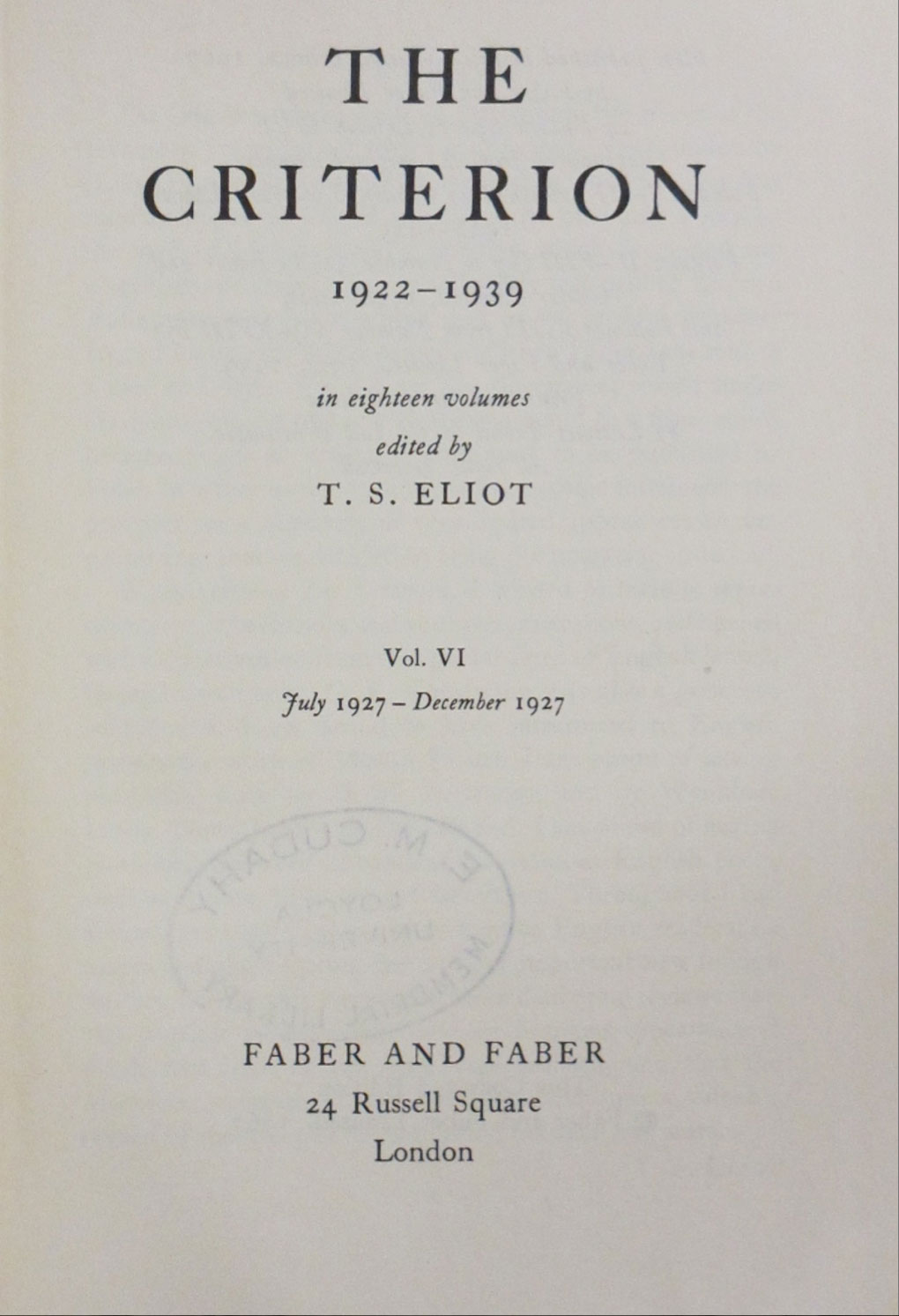
Orlo Williams. The Monthly Criterion: A Literary Review. Vol. 6, No. 1, July 1927,
pp.74-78.
To The Lighthouse. By Virginia Woolf. (Hogarth Press.) 7s. 6d.
net.
Mrs. Woolf is not an inventive writer: but thenŌĆöwhat time or
need has she for inventing, when she cannot overtake all that she
sees and feels and observes that other people see and feel? Miss
Lily Briscoe, in this last novel, as she is painting in the garden at
Skye where, ten years before, Mrs. Ramsay, her dead friend, made
part of the picture, sitting in the window with her youngest boy
upon her knee, becomes the vehicle of a rêverie upon which all
Mrs. WoolfŌĆÖs novels are simply variations.
ŌĆśShe must rest for a moment. And, resting, looking from one
to the other vaguely, the old question which traversed the sky of the
soul perpetually, the vast, the general question which was apt to
particularise itself at such moments as these, when she released
faculties that had been on the strain, stood over her, paused over
her, darkened over her. What is the meaning of life? That was
allŌĆöa simple question; one that tended to close in on one with
years. The great revelation perhaps never did come. Instead there
were little daily miracles, illuminations, matches struck unexpectedly
in the dark; here was one. This, that, and the other; herself and
Charles Tansley and the breaking wave; Mrs. Ramsay bringing
them together; Mrs. Ramsay saying ŌĆ£Life stand still hereŌĆØ; Mrs.
Ramsay making of the moment something permanent (as in another
sphere Lily herself tried to make of the moment something permanent)
ŌĆöthis was of the nature of a revelation. In the midst
of chaos there was shape; this eternal passing and flowing (she looked
at the clouds going and the leaves shaking) was struck into stability.
Life stand still here, Mrs. Ramsay said.ŌĆÖ
And, in the last lines of the book, ŌĆśYes, she thought, laying
down her brush in extreme fatigue, I have had my vision.ŌĆÖ
These passagesŌĆöone could find many others akin to themŌĆö
supply a perfect text for a survey, more exhaustive than space here
allows me, of all Mrs. WoolfŌĆÖs novels. They reveal, in a way that
makes commentary superfluous, the nature of her inspiration, and
they explain the recurrence of certain preoccupations, even of
certain typical characters and details, in her work. If you read the
five novels consecutively, this recurrence is very striking. The
Voyage Out is nothing but a tentative piecing together of the riddles
of life, in which, through inexperience, Mrs. Woolf used far too






